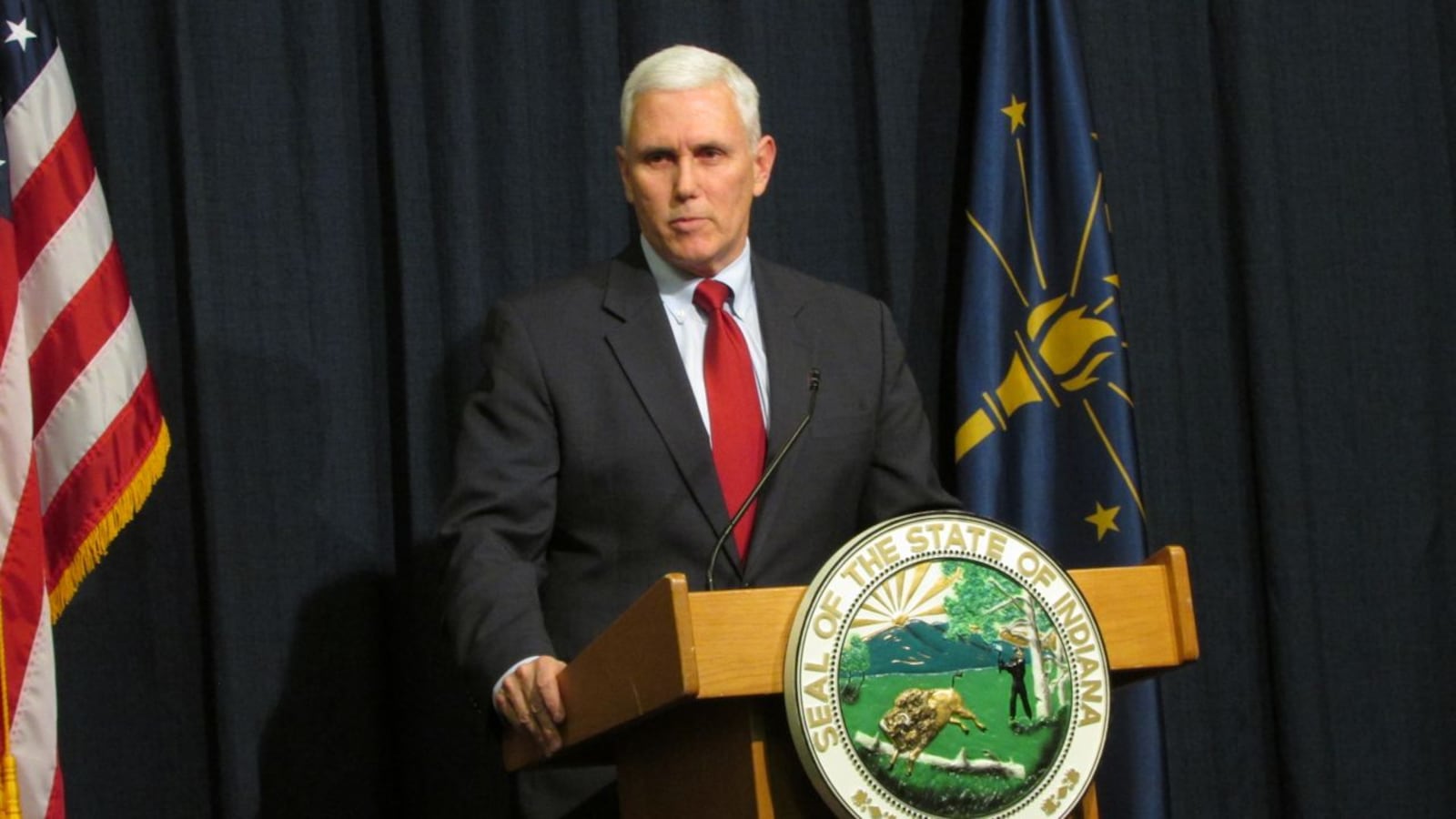Gov. Mike Pence called for a “step back” from the state ISTEP test in tonight’s State of the State address, reaffirming the view he shifted to late last year: that teachers and schools should get a break for lower test scores in 2015.
“Accountability is important, but testing must be reliable, and the results fairly applied,” Pence told an assembly of lawmakers, state officeholders and guests. “Let’s take a step back from ISTEP and improve on the test we use to measure our kids and schools every year. Let’s also take action to ensure that our teachers and schools are treated fairly with the results of the latest ISTEP test.”
Relief from sanctions after a free-fall in passing rates on ISTEP has quickly become the biggest education issue of 2015. Earlier today the Indiana House and Senate each approved a bill to neutralize ISTEP’s effect on teacher evaluations and school A-F grades. Those changes are on a lightning-fast track to the governor’s desk so that he might sign changes into law before the end of the month.
But it wasn’t long ago Pence and Republican leaders balked at Indiana state Superintendent Glenda Ritz’s suggestion they do just that.
For months, the governor decried options to “pause” state accountability that would reduce the degree to which lower-than-expected state ISTEP test scores factored into teacher ratings and A-F school grades. Indiana switched to new more challenging state standards in 2014 and then to a new ISTEP test in 2015, which led to school passing rates that were almost uniformly poor.
But Pence’s views slowly came to align with arguments Ritz has made for almost two years to moderate ISTEP sanctions.
Pence wrote a letter to Ritz in October urging that teachers not pay a price for lower 2015 scores. Teachers who receive poor evaluations, based in part on student test scores, can be fired or declared ineligible for pay raises.
Released last week, 2015 ISTEP scores showed that just four of 1,500 public schools that took the exam had more kids pass than the year before. Almost half of all kids who took the test failed math, English or both.
But Pence focused instead on the state’s success on other education measures, such as graduation rates and the National Assessment of Educational Progress, a national exam given to a sample of students sometimes called the “Nation’s Report Card.”
“In 2015, Indiana made genuine progress in student achievement,” Pence said. “We raised our standards and saw graduation rates go up to seventh highest in the nation. And Indiana kids outperformed the national average in every major category on the Nation’s Report Card.”
Pence touted last year’s budget and its boost to school funding, grants for school safety and push for career and vocational education. He also hailed two favorite programs: the state’s new preschool tuition support pilot and private school tuition vouchers, saying they were “opening doors of opportunity for disadvantaged kids.”
Pence’s yearly address also offered support for a bill from House Speaker Brian Bosma, R-Indianapolis, that would award scholarships to Indiana students who commit to teaching in state schools for four years following graduation.
The scholarships would include $7,500 per year for four years of tuition for about 200 students who rank in the top 20 percent of their high school graduating class, Bosma said last week. Students could use the funds at private and public schools.

